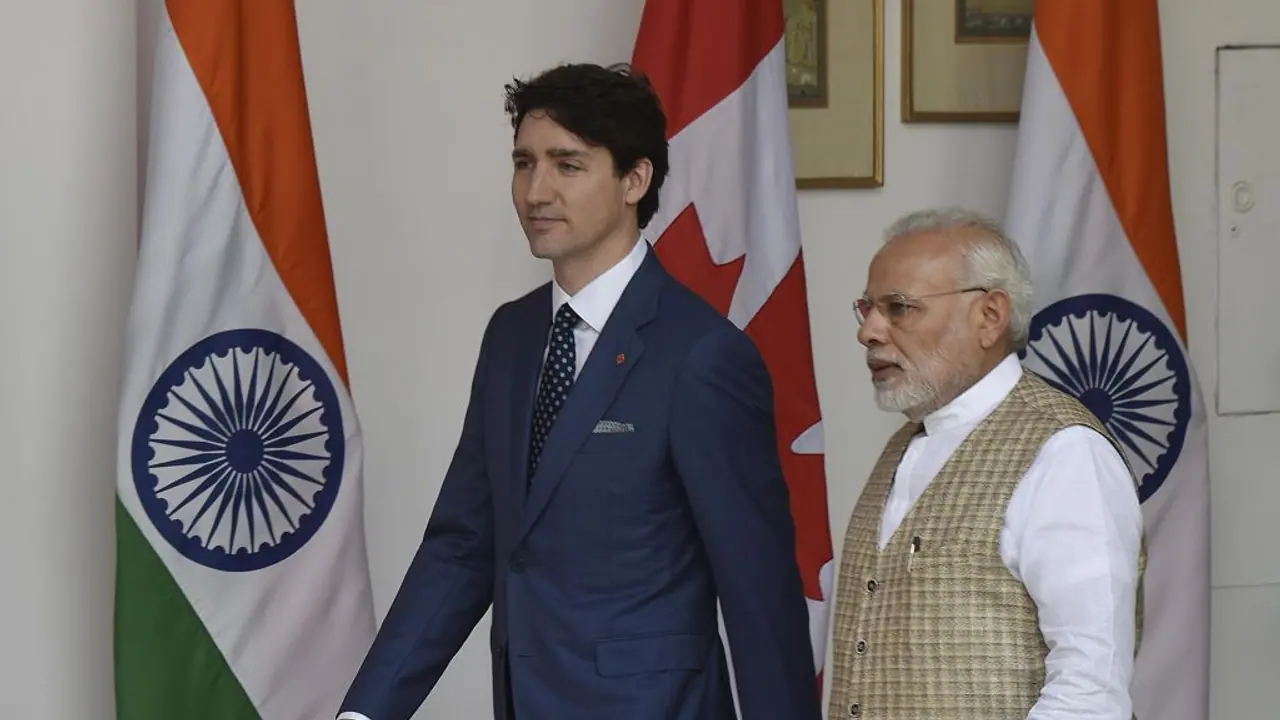Justin Trudeau's resignation as Canada's Prime Minister marks a pivotal moment, with significant implications for Canada-India relations, trade, and immigration policies.
Canadian Prime Minister Justin Trudeau announced his resignation as leader of the Liberal Party and head of government on Monday, signaling the end of a significant chapter in Canadian politics. Trudeau will remain in office until the Liberal Party elects a new leader, though the timeline for his departure remains uncertain.

Trudeau’s resignation comes amid heightened diplomatic tensions with India following his allegations that the Indian government orchestrated the assassination of Khalistani activist Hardeep Singh Nijjar in Canada—a claim that New Delhi has vehemently denied. The accusations, unsupported by publicly shared evidence, have strained bilateral relations, leaving a legacy of mistrust between the two nations.
Diplomatic Shifts on the Horizon
As Trudeau steps down, questions abound regarding Canada’s foreign policy, particularly its approach to India. Analysts speculate whether the Liberal Party’s new leader will maintain Trudeau’s critical stance or adopt a more conciliatory approach. Should the Conservatives, led by Pierre Poilievre, gain political ground, a shift toward prioritizing trade and economic collaboration with India could emerge.
Poilievre has been openly critical of Trudeau’s handling of India relations and may seek to repair economic ties. However, his past actions, such as withdrawing from a Diwali event in 2022, have raised concerns among Canada’s Indian diaspora, suggesting that his approach may be complex and fraught with challenges.
Trade and Economic Relations at a Crossroad
Under Trudeau’s tenure, Canada-India trade thrived, with bilateral trade reaching $8.4 billion in the 2024 fiscal year. Key exports like potash, industrial chemicals, and minerals fueled economic cooperation, while Canada benefited from India’s pharmaceutical and technology sectors.
Ongoing trade negotiations, including the Comprehensive Economic Partnership Agreement (CEPA), now face uncertainty. India is closely monitoring Canada’s political transition, which could significantly impact trade dynamics. Experts caution that any abrupt policy changes may disrupt progress in economic collaboration.
Immigration Policies Under Scrutiny
Trudeau’s handling of immigration, particularly his government’s decision to reduce international student permits and end the fast-track SDS visa program, has drawn criticism. The cuts have disproportionately affected Indian students, who make up a significant portion of Canada’s international student population, numbering over 427,000.
The Conservative Party has signaled intentions to adopt a more selective immigration system, favoring highly skilled workers and students. While this may resonate with segments of the Canadian electorate, it risks alienating Indian communities already frustrated by recent policy changes.
The Road Ahead
Trudeau’s resignation marks a pivotal moment in Canada’s domestic and international politics. As the Liberal Party prepares to select a new leader, the future of Canada-India relations hangs in the balance. Whether the next Prime Minister will prioritize healing diplomatic wounds or maintain a firm stance on contentious issues remains to be seen.
With India’s growing global influence, Canada’s leadership transition will have profound implications for trade, immigration, and diplomacy. As the nation moves into uncharted territory, the world watches closely to see how Canada’s new direction shapes its position on the global stage.
